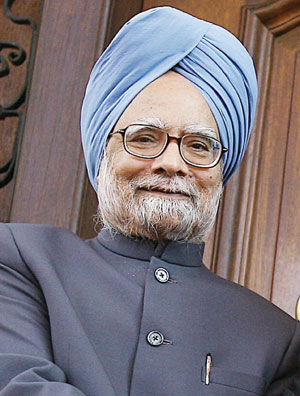Boon or Bane?
01 Jan 2013
5 Min Read
CW Team
Is the Cabinet Committee on Investment (CCI) an effective solution to expedite delayed big ticket projects? Shriyal Sethumadhavan has some answers.
Here’s a new panel for the infrastructure sector – one with the authority to intervene. The recently cleared Cabinet Committee on Investment (CCI), initially proposed as the National Investment Board (NIB), will be chaired by Prime Minister Dr Manmohan Singh. The committee aims to expedite delayed projects by setting timelines for concerned ministries. For starters, projects worth over Rs 200,000 crore have been held up in the roads, power, coal and mining sectors owing to regulatory hurdles. A typical infrastructure project requires clearances from 19 federal ministries and 56 authorisations. It’s a tough job – can the CCI get it done?
Addressing the issues
While the broad goals of the body have been stated, its specific objectives are yet to be established. “The devil lies in the details,” says Pradeep Singh, Vice Chairman & CEO, IDFC Projects. “Success will depend upon whether it becomes yet another debating society or is vested with real powers.”
For his part, Vinayak Chatterjee, Chairman, Feedback Infrastructure Services, avers, “It aims to pull 19 institutions at the central level, and 29 state governments. If the system re-energises and permissions keep coming fast, I think the objective would be met.” Here Ajit Gulabchand, Chairman and Managing Director, Hindustan Construction Company (HCC), poses the question: How? “The government’s heart is in the right place. But as its exact working has not been spelt out adequately, a deeper dialogue on achieving rapid clearances is required.”
Further, Chatterjee says the proposed NIB would have been far more powerful. “NIB would have stood apart from other existing cabinet committees.” In his view, the bang the industry expected from the NIB has now become a whimper. “CCI can neither overrule the decisions of the line ministry nor hear appeals against them.
It is nothing more than a coordinating body.” The core team Considering project delays are often blamed on environment clearance, land acquisition and financial closures, if the CCI comprises ministers of ministries that may have created these obstacles, how will the imbroglio be resolved? “Even well-intentioned ministries may not be able to take a comprehensive view and decide on trade-offs individually to achieve best results,” says Singh. “Hence, CCI will fulfill that role and provide guidance and directions to ministries slipping in their performance.” Subhendu Moitra, Vice President - Project Advisory and Structured Finance, SBI Capital Markets, believes this will yield good results. “When ministries discuss issues across the table, they will be able to understand each others’ view clearly and zero in on an amicable solution.”
However, Chatterjee believes such a task will require a permanent secretariat of 10-20 officers with supporting staff “If that is to be done, why not have an infrastructure ministry?” he questions. “What’s the point of having a secretariat attached to the cabinet secretariat, receiving guidance from the PMO? This creates confusion.”
Revamping rules
There is certainly a crying need to speed up decision-making. “The problem is not always with the laws or rules but with implementation and enforcement,” adds Singh. “The processes are often tedious and unnecessary.” Gulabchand shares a similar view. “Can the 19 clearances be brought down to five?” he asks. “If yes, how can it be delivered faster?” Meanwhile, Moitra hopes, “Such a committee, to some extent, will take a more holistic view that may lead to a situation similar to the single-window clearance.”
In India, different ministries administer different laws. Hence, NIB was initially opposed because it was interfering with the powers of the line ministry. However, as Chatterjee remarks, “When the rules of the business are not delivering, why not change them so the CCI’s decisions become binding for all the ministries?” Also, Singh highlights that no government body is above the law or can run its own private fiefdom. “The CCI and the prime minister have a duty to oversee and coordinate the work of ministries,” he affirms. “If the CCI bypasses laws but the ministries uphold them, it would be an insult to the institutions of the prime minister and the Cabinet.”
Tough route
The task before the CCI is huge: giving permissions and following up after these are cleared; cutting across 19 ministries, 29 state governments and 200 urban local bodies; addressing independent regulatory authorities; cleaning up the environmental laws; and so on. If the committee takes a proactive stance and is able to bring about maturity and cohesiveness amongst all concerned ministries, it would highly benefit the country. However, while the idea initially mooted by Finance Minister P Chidambaram pleased the industry, the fact remains that the CCI is considered a watered-down version of the NIB. As Chatterjee quips, “It is like an old wine in an old bottle pulled out of the fridge.” Still, although the structure does not inspire too much confidence, its performance may well do. All it requires is leadership, energy and a can-do attitude.


















